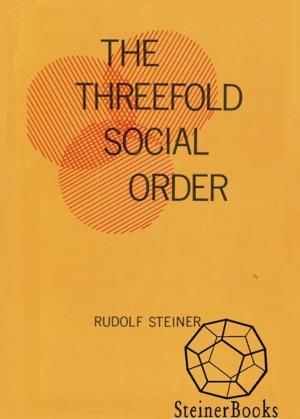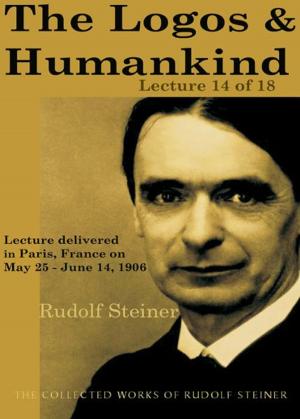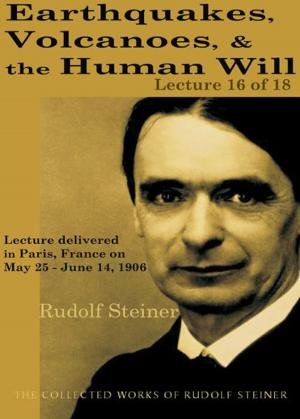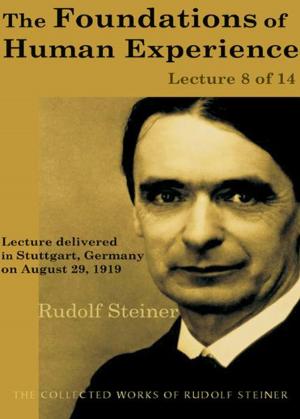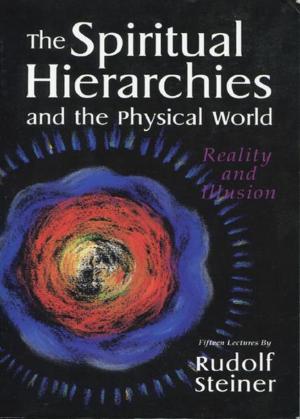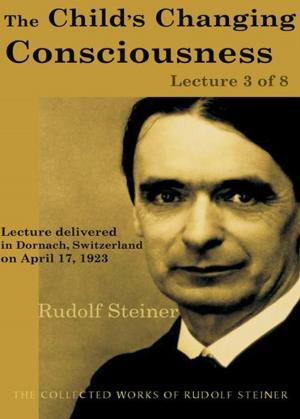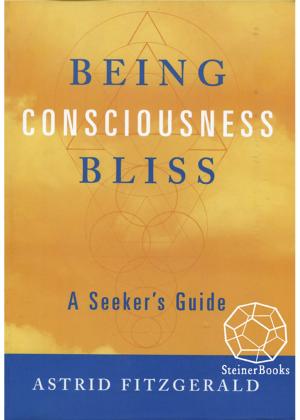The Tension between East and West
10 lectures, Vienna, June 111, 1922 (CW 83)
Nonfiction, Religion & Spirituality, Philosophy| Author: | Rudolf Steiner | ISBN: | 9781621511472 |
| Publisher: | SteinerBooks | Publication: | July 1, 1983 |
| Imprint: | SteinerBooks, Collected Works 83 | Language: | English |
| Author: | Rudolf Steiner |
| ISBN: | 9781621511472 |
| Publisher: | SteinerBooks |
| Publication: | July 1, 1983 |
| Imprint: | SteinerBooks, Collected Works 83 |
| Language: | English |
This challenging set of lectures attempts to lift the veil from modern social and spiritual problems as experienced in the contrasts between East and West. By ascribing to human thinking only a shadowy, subjective validity, modern science tries to invalidate the very faculty that gives us our human dignity. At the same time, however, this "unreality" of thought images makes possible an inner freedom that scientific doctrine tends to deny in principle. The need arises from these contradictions to extend the limits of ordinary scientific thinking to new investigative faculties. In part one, "Anthroposophy and the Sciences," Rudolf Steiner esplains that this can be achieved in a healthy way through two kinds of meditative excercises, very different in character from yoga and asceticism and other older paths to higher knowledge. These disciplines lead to the discovery of a paradoxical truth: "If you would know yourself, look into the world. If you would know the world, look into your self." The spiritual scientific philosophy thus presented provides a framework within which the second half of the book ("Anthroposophy and Sociology") considers how a healthy social life can be understood and shaped. Today the old social instincts of humanity have grown uncertain, and the rational intellect is proving unsuited to comprehend and foster a humane social life. While admitting that we are only beginning to discover the right relationship between individual and community, Steiner describes how a conscious spiritual life is able to give the same social certainties as did the earlier "instictive" life. He then explains how we might find a way from our highly developed sense of personal self into the worldwide social organism.
This challenging set of lectures attempts to lift the veil from modern social and spiritual problems as experienced in the contrasts between East and West. By ascribing to human thinking only a shadowy, subjective validity, modern science tries to invalidate the very faculty that gives us our human dignity. At the same time, however, this "unreality" of thought images makes possible an inner freedom that scientific doctrine tends to deny in principle. The need arises from these contradictions to extend the limits of ordinary scientific thinking to new investigative faculties. In part one, "Anthroposophy and the Sciences," Rudolf Steiner esplains that this can be achieved in a healthy way through two kinds of meditative excercises, very different in character from yoga and asceticism and other older paths to higher knowledge. These disciplines lead to the discovery of a paradoxical truth: "If you would know yourself, look into the world. If you would know the world, look into your self." The spiritual scientific philosophy thus presented provides a framework within which the second half of the book ("Anthroposophy and Sociology") considers how a healthy social life can be understood and shaped. Today the old social instincts of humanity have grown uncertain, and the rational intellect is proving unsuited to comprehend and foster a humane social life. While admitting that we are only beginning to discover the right relationship between individual and community, Steiner describes how a conscious spiritual life is able to give the same social certainties as did the earlier "instictive" life. He then explains how we might find a way from our highly developed sense of personal self into the worldwide social organism.

